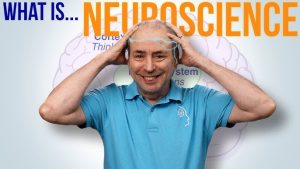
Introduction
We live in a time filled with endless distractions. Phones vibrate with notifications, inboxes fill with urgent emails, and a host of digital platforms vie for our attention. In this environment, staying on task can feel nearly impossible. Yet, people who excel at work or creative pursuits seem to tap into a special formula that allows them to focus. This isn’t just luck. It often stems from an understanding of neuroscience, which uncovers the inner workings of the brain and why we lose or gain concentration.
The link between productivity and mental clarity becomes clearer when you look at how the brain processes information. Everything from dopamine responses to our attention span plays a role in whether we reach our goals efficiently or spiral into procrastination. By applying brain hacks grounded in real science, you can learn to optimize your daily routine and produce better results in less time. Join us as we explore these insights and discover how they lead to maximum focus.
What Is Neuroscience?

Neuroscience is the branch of science that studies the structure and function of the nervous system, especially the brain. Although it may sound highly technical, it has practical applications we can use in everyday life. Research within this field helps explain how neurons transmit signals and store information. It also investigates how chemical messengers like dopamine shape our emotions, motivations, and decision-making.
This science goes beyond theories in a textbook. It helps us see why certain habits either enhance or harm our cognitive function. When you understand how the brain’s networks work, you can structure your day to encourage healthier patterns. For instance, short mental breaks can boost neuroplasticity, or the brain’s ability to adapt and learn. A sharper mind often leads to increased productivity. In essence, neuroscience bridges the gap between scientific discovery and practical tips, showing us how to harness our neural wiring for peak performance in work or personal projects.
Brain Hacks for Maximum Focus

The key to reaching maximum focus lies in understanding how your brain naturally operates, then using that knowledge to create supportive routines. Below are strategies grounded in neuroscience that can help you get into a state of deep concentration:
First, chunk your tasks. Rather than facing big projects all at once, break them into smaller, specific parts. Each time you finish a segment, you trigger a modest rush of dopamine, boosting motivation. It’s the same principle that makes video games addictive. You achieve micro-goals, each giving you a mental reward, which helps you press on.
Second, employ the Pomodoro Technique or variations of it. Work for a set period, say 25 minutes, followed by a short break of about five minutes. This rhythm aligns well with the brain’s natural cycles of alertness. During breaks, resist the urge to scroll through social media. Instead, take a few deep breaths or stretch. This quick mental rest renews energy and maintains your attention span.
Third, use visual cues in your workspace. A simple to-do note placed where you can see it often nudges your brain to focus on the next urgent task. Likewise, removing clutter helps your mind stay clear. Neuroscientific studies confirm that disorder drains mental resources as your eyes wander, scanning the environment.
Finally, don’t forget the power of white noise or instrumental music to mask distractions. By reducing background chatter, your brain can lock onto what truly matters. Consistency is everything. When you repeat these steps daily, your brain rewires itself to favor peak performance, making intense focus feel more natural over time.
Lifestyle Habits for Enhanced Mental Performance

Brain hacks don’t stop at your desk or office. Your day-to-day habits have a massive impact on your cognitive function. A few lifestyle shifts can enhance mental performance, reduce stress, and ultimately improve your productivity.
First, aim for enough sleep. Quality rest allows the brain to process the day’s events, solidify new information, and clear out unnecessary data. Chronic sleep deprivation affects attention span, emotional balance, and decision-making skills. A night of solid sleep boosts dopamine regulation and helps you tackle tasks with renewed vigor.
Second, pay attention to what you eat. Foods high in healthy fats, like avocados or salmon, support brain cell membranes. Antioxidant-rich fruits and vegetables help combat oxidative stress that impairs mental clarity. Even staying hydrated ensures smooth neural function, keeping headaches and fatigue at bay.
Exercise is equally crucial. Activities like a brisk walk or short workout break release endorphins, which uplift mood and sharpen focus. Physical movement also promotes the growth of new neurons, aiding neuroplasticity. Add mindfulness practices, such as yoga or meditation, to soothe your brain’s stress response. This calm state makes it easier to handle complex tasks.
Lastly, remember to cultivate a balanced mindset. Perfectionism can lead to burnouts. Instead, embrace a growth view, where mistakes are part of learning. By weaving these steps into your routine, you form a sturdy foundation for steady, consistent peak performance—both at work and in your personal life.
Common Pitfalls to Avoid

Even with the best intentions, certain habits can sabotage your attempts to leverage neuroscience for better productivity. One frequent pitfall is multitasking. Although it feels efficient, switching between tasks fragments your attention span and disrupts the flow of work. The brain isn’t designed to handle multiple high-level tasks at once, leading to more errors and stress.
Another issue is ignoring the need for breaks. Many people push themselves relentlessly, believing constant effort equals better results. In reality, mental fatigue sets in quickly, harming cognitive function. Short, regular pauses help your mind regroup, making your next work session more fruitful.
A third trap involves digital overload. Constant notifications, open browser tabs, and social media pings drain your focus. These small interruptions force your brain to shift gears repeatedly, burning mental energy. Turning off unnecessary alerts or placing your phone out of reach during focused work can dramatically reduce distractions.
Lastly, some individuals adopt unrealistic schedules. They plan out tasks in a way that leaves no breathing room. When something unexpected happens, everything falls behind, causing frustration. A more flexible approach improves not just time management but also your mental health, reducing the risk of burnout.
The Future of Focus and Productivity

Looking ahead, new research will likely bring even more brain hacks for better focus and efficiency. Technology may play a bigger role, with apps and devices that monitor brain waves, stress levels, or heart rate to suggest the best times to work or rest. Experts might also find ways to tailor advice for different types of learners, making sure each person gets the guidance that works best for their mind. As this field grows, more employers may adopt brain-based programs, hoping to create workplaces that support both well-being and productivity. In the end, the goal is to help everyone find smart ways to stay focused, feel happier, and achieve more each day.
Comparative Table: Quick Reference Brain Hacks and Their Neuroscience Basis
| Brain Hack | Neuroscience Principle | Benefit for Productivity |
|---|---|---|
| Task Chunking | Dopamine release on completion | Reinforces motivation, sets clear goals |
| Pomodoro Technique | Cycles of alertness | Maintains attention span, prevents fatigue |
| Decluttering Workspace | Reduced sensory overload | Frees mental resources, promotes focus |
| Mindful Breaks | Stress recovery, neuroplasticity support | Boosts mental clarity, rejuvenates energy |
| Healthy Diet & Exercise | Optimal cognitive function | Enhances overall mental clarity |
Conclusion
Understanding neuroscience gives you a roadmap to fine-tune your productivity and deepen your attention span. From chunking tasks to adopting a more balanced lifestyle, each strategy builds upon how your brain naturally works. These steps not only help you achieve more in less time but also keep you mentally energized. By making simple changes like decluttering your workspace or adjusting your diet, you can support your quest for maximum focus. With consistent practice, you’ll find these routines becoming second nature and fueling ongoing peak performance in every aspect of your life.









